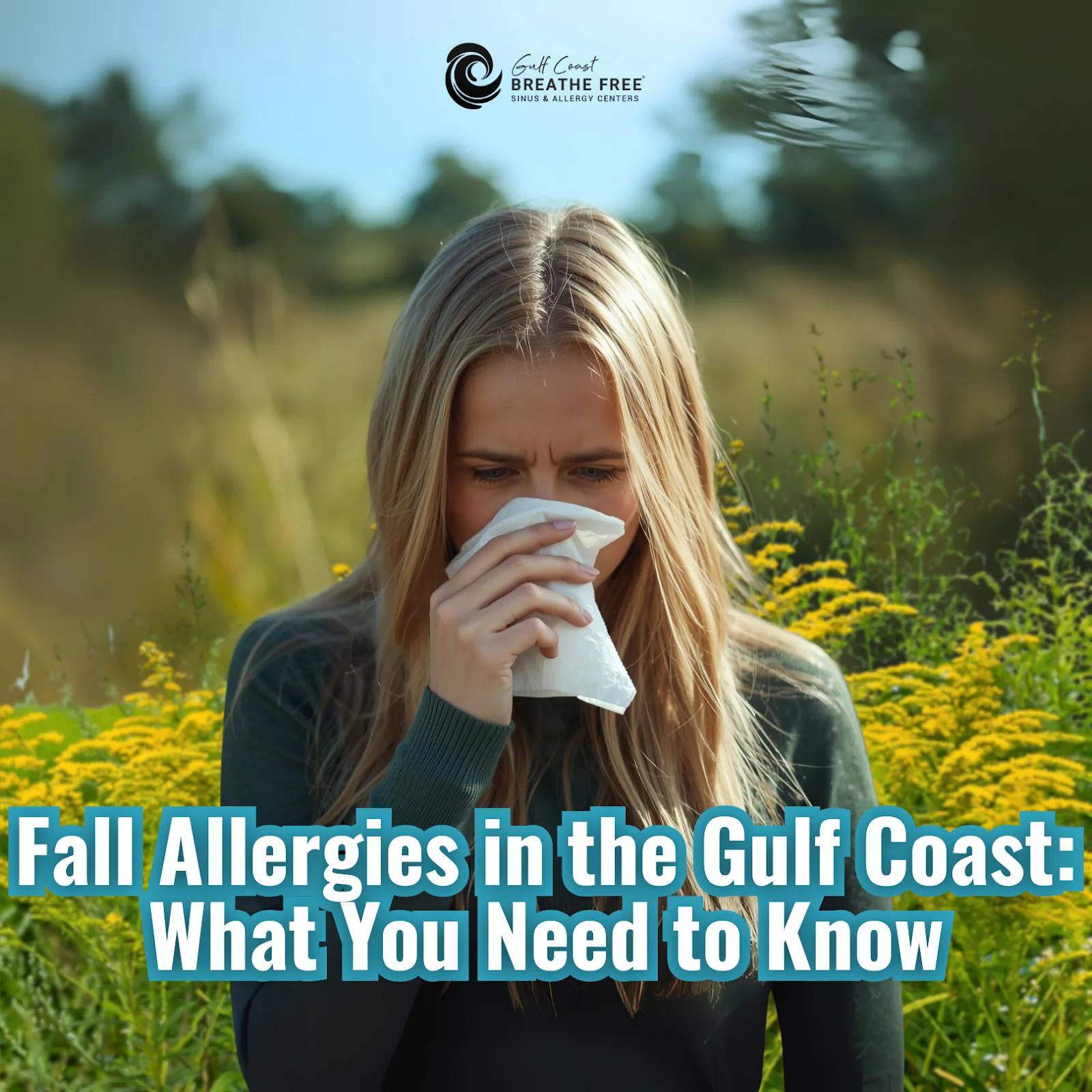Fall Allergies in the Florida Gulf Coast: What You Need to Know
Florida’s Gulf Coast—stretching from Tampa Bay to Fort Myers and Naples—is known for its warm weather, coastal beauty, and rich plant life. But for many residents and visitors, these same environmental factors can also trigger frustrating fall allergy symptoms.
If you're experiencing sneezing, congestion, or itchy eyes during the fall months, understanding how seasonal allergens affect this region can help you manage symptoms more effectively and make informed decisions about your health.

What Causes Fall Allergies in the Gulf Coast?
Fall is a high-allergy season across Florida, and the Gulf Coast is no exception. Several factors contribute to prolonged allergy symptoms in this region:
- Ragweed Pollen: A leading trigger, especially in late summer through fall.
- Mold Spores: Thrive in Florida’s warm, damp environment—especially after rainfall or humidity spikes.
- Oak and Pine Pollen: May begin emerging in the fall and linger into the winter.
Florida’s extended growing season means the fall allergy period can last through November and even December—much longer than in many other U.S. regions.
Common Fall Allergy Symptoms
Allergy symptoms vary, but typical fall reactions in areas like Sarasota, Tampa Bay, and Fort Myers include:
- Sneezing
- Runny or stuffy nose
- Nasal congestion
- Coughing
- Scratchy throat
- Itchy, watery eyes
- Headaches
- Skin irritation or rashes
- Clear, thin mucus discharge
If symptoms persist or worsen, you may be experiencing seasonal allergies rather than a cold or sinus infection.
Managing Fall Allergies in Coastal Florida
Living in an allergy-prone area doesn’t mean you have to suffer. With the right precautions and medical care, many individuals find relief.
✅ Reduce Exposure to Common Allergens
- Monitor local pollen forecasts in areas like Tampa or Sarasota.
- Stay indoors during high-pollen hours (typically morning and early evening).
- Keep windows closed and use HEPA filters in your home.
- Shower and change clothes after outdoor activity.
- Vacuum and dust often—especially bedrooms and high-traffic areas.
- Wash bedding weekly in hot water.
- Keep pets groomed and off furniture when possible.
- Stay hydrated to support sinus health.
- Use protective gear like masks or sunglasses outdoors on high-pollen days.
- Maintain outdoor spaces by mowing grass, trimming trees, and removing weeds.
✅ Consider Medical Treatment Options
Always speak with a licensed healthcare provider before starting any allergy treatment. A provider can help tailor your care based on your specific triggers and health needs.
- Allergy Testing: Identifying your specific allergens is the first step to building a targeted treatment plan.
- Over-the-Counter Relief: Antihistamines, nasal sprays, and decongestants may help, but consult a provider—especially if you have underlying conditions.
- Immunotherapy:
For certain patients, sublingual immunotherapy (SLIT) or allergy drops may help build tolerance over time.
⚠️ Note: While SLIT tablets for specific allergens are FDA-approved, many forms of allergy drops are considered off-label in the U.S. Always consult your provider about the risks, benefits, and regulatory status of any treatment.
🌴 Your Gulf Coast Allergy Care Partner
At Gulf Coast Breathe Free, we offer comprehensive evaluations and evidence-based allergy care for patients across Southwest Florida—from Tampa to Naples.
Whether you’ve lived in the area for years or are new to the Gulf Coast, our team is here to help you better understand your symptoms and explore treatment options tailored to your needs.
⚠️ Individual results may vary. Our care plans are customized to each patient’s medical history, lifestyle, and response to treatment.
📅 Schedule an Allergy Consultation Today
Don’t let fall allergies control your life. Contact Gulf Coast Breathe Free to schedule an appointment and learn how we can help you breathe easier this season.

.webp)